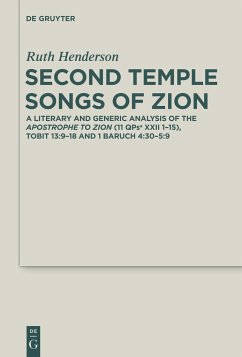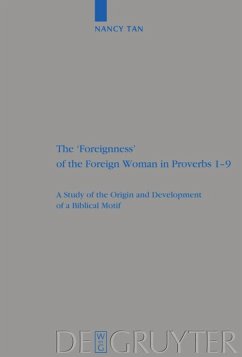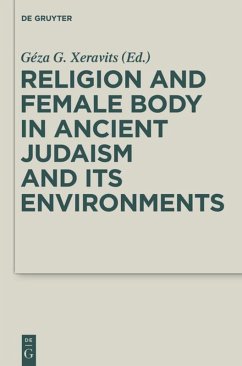
Foreign Nations in the Wisdom of Ben Sira
A Jewish Sage between Opposition and Assimilation

PAYBACK Punkte
66 °P sammeln!
Ben Sira lived in an era when Hellenistic influences continued to spread in Palestine. The supreme political power was in the hands of foreign rulers. Under these circumstances it is no wonder that Ben Sira discusses the position of foreign nations in several passages. The tone varies due to the given context. This study demonstrates that Ben Sira's relationship to foreign nations is best defined as "balanced", as his attitude is neither thoroughly hostile nor that of uncritically embracing Gentiles. On the basis of certain passages, one can get the impression that even the foreigners could be...
Ben Sira lived in an era when Hellenistic influences continued to spread in Palestine. The supreme political power was in the hands of foreign rulers. Under these circumstances it is no wonder that Ben Sira discusses the position of foreign nations in several passages. The tone varies due to the given context. This study demonstrates that Ben Sira's relationship to foreign nations is best defined as "balanced", as his attitude is neither thoroughly hostile nor that of uncritically embracing Gentiles. On the basis of certain passages, one can get the impression that even the foreigners could be recipients of the Torah. On the other hand, some nations were regarded by earlier biblical authors as archenemies of Israel, and these anti-elect people caused also Ben Sira's anger to be provoked. Ben Sira was deeply rooted in Judaism but this did not prevent him from being open toward foreign influences as far as they were compatible with his religious and cultural heritage.














